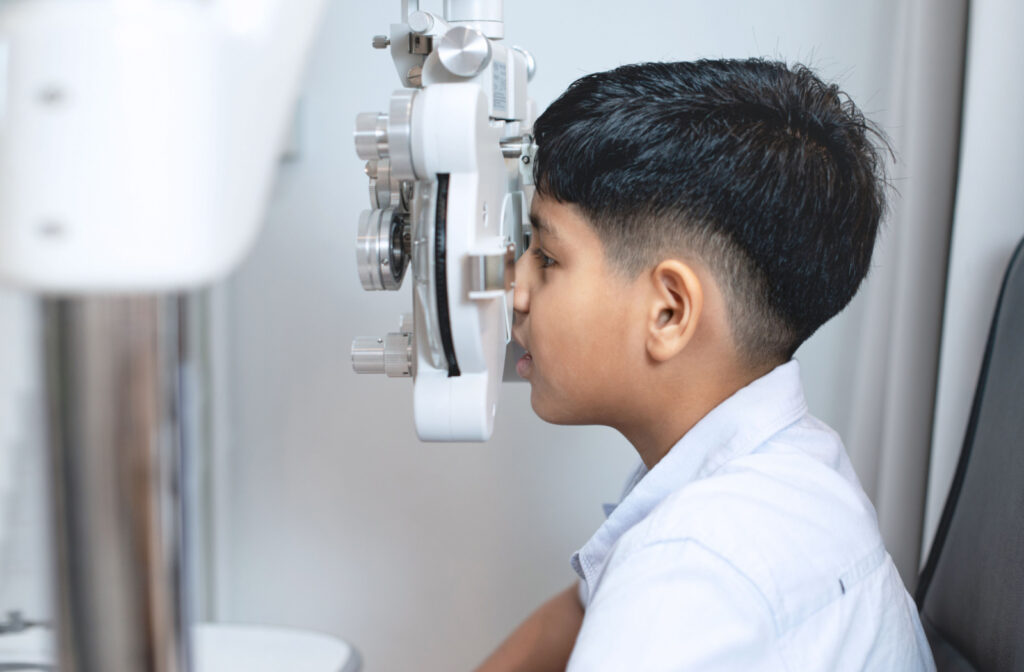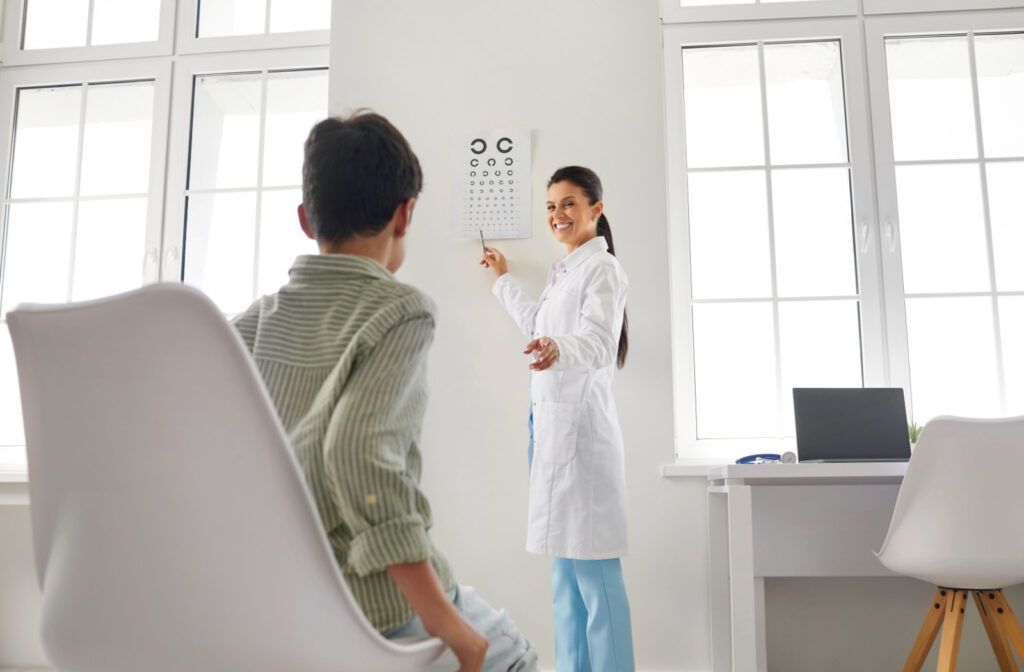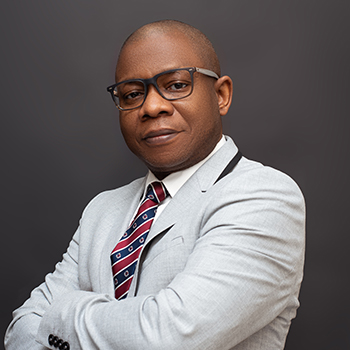Imagine seeing the world through your child’s eyes—every colour and movement is a new discovery. These are crucial tools for learning, exploring, and growing. Like any tool, eyes require regular care and maintenance to function healthily. That’s why experts can’t stress enough the importance of regular eye exams.
During your kid’s first eye exam, an optometrist conducts a series of tests to test their vision, eye muscles, and overall health. They can determine if your child needs glasses and if their eyes are on the right track. Common conditions like myopia may have better outcomes if diagnosed and treated early. So, don’t put off this important milestone!
The Importance of Eye Exams
One reason eye exams are essential for kids is they can help detect vision problems early on—and early detection could help prevent those same vision problems from developing into serious issues. This is especially important in this digital age, where kids are spending more and more time looking at digital screens, like TVs, computers, tablets, or smartphones.
There seems to be evidence linking excessive screen time to myopia, also known as nearsightedness. This condition can worsen as your child ages. Regular eye exams allow your optometrist to track their vision and prescribe glasses or contact lenses—even as your child’s vision changes. Your optometrist could also recommend myopia control to potentially slow its progression.
Vision & Learning
Kids who have undetected vision problems are at risk of falling behind in school. It’s challenging to learn and concentrate when you can’t see properly. Kids may miss out on crucial information on the whiteboard or handouts, leading to lower grades and reasonable frustration. They may even be misdiagnosed as having ADHD.
An optometrist can offer guidance on how to help your child deal with these issues and try to get the most out of their school day.
What Happens During an Eye Exam
Eyes are complex, and vision issues or eye problems can be sneaky. They often come with subtle signs that can easily go unnoticed. A few standard tests can help your optometrist uncover what’s hidden.
Pre-Exam Questions & Basic Tests
Before the actual eye exam begins, the optometrist may ask some basic questions about your child’s medical history and any vision problems they may be experiencing. They may also test their basic vision and colour perception using a chart with letters or shapes. These tests are usually fun and interactive, using various objects or games to keep your child entertained.
Eye Health Examination
Once the basic tests are done, the optometrist will perform a thorough eye health examination. This involves using various techniques and tools, such as a slit lamp, which can examine your child’s eyes inside and out. This will allow the optometrist to check for signs of disease or damage.
Refraction Testing
If your optometrist finds that your child requires vision correction, they may conduct a refraction test. This can be done using a machine that measures the light your child’s retina reflects, or they may use a phoropter. This is a mask-like device someone can look through. Your optometrist then cycles through lenses to see which provides the clearest vision.
Eye Muscle Testing
Your optometrist may also test the child’s eye muscles to determine if they work correctly. This is particularly useful for infants and toddlers since they are at risk of developing crossed eyes or a lazy eye. Treating these conditions while still young can often lead to full recovery.
Eye muscle testing could involve having your kid follow a moving object with their eyes to check for any focus, alignment, and movement issues.
Diagnosing & Treatment
If your optometrist discovers any issues during the examination, they can diagnose the problem and offer treatment suited to your child’s unique needs. This may include corrective lenses or something like vision therapy.
Your optometrist can also advise on how to maintain—or possibly improve—your child’s eye health. This advice may include proper nutrition or spending time outside.

When to Bring a Child to Their First Eye Exam?
It’s recommended that children receive their first eye exam between 6–9 months of age. This is because, at this stage, infants’ eyes have developed to the point they’re similar to adult eyes. At this point, early problems can be detected and treated quickly, potentially leading to better outcomes.
Children should have another eye exam between 2–5 years of age and annual exams every year until age 19. After that, adults are recommended to visit at least every 2 years.
These are only guidelines. Some kids may need more frequent eye exams if they’re at risk of eye conditions or their prescription is changing rapidly. As their parent, you should also be on the lookout for signs and symptoms that may indicate an eye health concern. Failure to identify vision problems in children can lead to more significant developmental issues, so it’s critical to take action when necessary.
Here are some indications it might be a good idea to book a comprehensive eye exam for your kid with your optometrist:
- Light sensitivity
- Squinting, eye rubbing, or blinking excessively
- Holding objects unusually close to read
- A turned eye, either in or out
- Itchy, red, or watery eyes
- Trouble concentrating
- Regularly covering or closing one eye
- Avoiding activities like reading or watching television
- Expressing frustration or grimacing
Book Your Kid’s Eye Exam
Whether it’s your kid’s first exam or their tenth, our friendly team at Alcona Eye Care Centre is ready to support your child’s visual health. Shine a light on your kid’s eye health and book your kid’s eye exam today.




